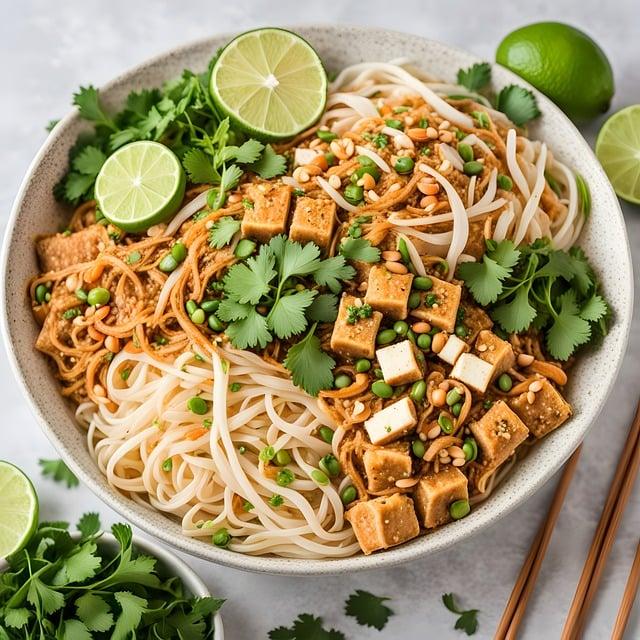When Bella, a spirited golden retriever, suddenly developed an upset stomach, her worried owner rushed her to the vet. After a thorough examination, the vet recommended a simple yet effective diet: chicken and rice. This bland meal is gentle on a dog’s digestive system, providing essential nutrients without overwhelming their stomach. As Bella quickly recovered, her owner learned that this classic combination not only aids in healing but also promotes overall health. Trust your vet—chicken and rice could be the key to your furry friend’s well-being!
Contents
- Understanding the Nutritional Benefits of Chicken and Rice for Dogs
- The Role of Chicken and Rice in Digestive Health and Recovery
- Expert Insights: When and Why Vets Advocate for This Diet
- Practical Tips for Preparing and Serving Chicken and Rice to Your Dog
- Q&A
Understanding the Nutritional Benefits of Chicken and Rice for Dogs
When it comes to canine nutrition, few meals are as universally recommended as chicken and rice. This simple yet effective combination offers a plethora of benefits that cater to the unique dietary needs of dogs, especially those experiencing digestive issues. The digestibility of both chicken and rice makes this meal a go-to for veterinarians when dogs are recovering from gastrointestinal distress. The easily digestible nature of these ingredients helps to minimize the risk of further irritation to the digestive tract.
Chicken is a high-quality source of protein, essential for maintaining muscle mass and overall health. It provides the necessary amino acids that support various bodily functions, including immune response and tissue repair. Additionally, chicken is low in fat, making it an excellent option for dogs that need to maintain a healthy weight or are on a restricted diet. By incorporating chicken into their meals, pet owners can ensure their dogs receive the protein they need without unnecessary calories.
Rice, particularly white rice, serves as a gentle carbohydrate source that is easy on the stomach. It provides a quick source of energy, which is crucial for active dogs or those recovering from illness. The bland nature of rice helps to bind stool and can alleviate diarrhea, making it a staple in many veterinary-recommended diets. Furthermore, rice is gluten-free, making it suitable for dogs with sensitivities or allergies to grains.
Combining chicken and rice not only creates a balanced meal but also allows for versatility in preparation. Pet owners can easily adjust the proportions or add other dog-safe ingredients, such as vegetables, to enhance the nutritional profile. This adaptability ensures that dogs receive a well-rounded diet that meets their specific needs. By choosing chicken and rice, pet owners can provide their furry companions with a wholesome, nourishing meal that promotes recovery and overall well-being.
The Role of Chicken and Rice in Digestive Health and Recovery
When it comes to promoting optimal digestive health in dogs, few meals are as universally recommended as chicken and rice. This simple yet effective combination is not only palatable for most dogs but also gentle on their stomachs. The easily digestible nature of both ingredients makes them ideal for pets recovering from gastrointestinal issues, such as diarrhea or vomiting. By providing a balanced source of protein and carbohydrates, chicken and rice can help restore normal digestive function.
Chicken is a lean protein that is low in fat, making it an excellent choice for dogs with sensitive stomachs. It is rich in essential amino acids, which are crucial for tissue repair and overall recovery. Additionally, chicken is less likely to trigger food allergies compared to other protein sources, making it a safe option for many dogs. When prepared without skin or seasoning, it becomes an even more suitable meal for pets needing a bland diet.
Rice, particularly white rice, serves as a gentle carbohydrate that provides energy without overwhelming the digestive system. It is easy to digest and can help firm up loose stools, making it a go-to choice for dogs experiencing digestive distress. The soluble fiber found in rice can also aid in regulating bowel movements, ensuring that your dog’s digestive tract returns to normal function more quickly.
Combining chicken and rice creates a balanced meal that not only supports recovery but also encourages hydration, especially when served with a bit of broth. This combination can help soothe an upset stomach while providing the necessary nutrients for healing. Many veterinarians advocate for this diet as a first step in managing digestive issues, highlighting its effectiveness and the comfort it brings to dogs during their recovery process.
Expert Insights: When and Why Vets Advocate for This Diet
Veterinarians often recommend a chicken and rice diet for dogs experiencing gastrointestinal issues. This simple, bland diet is easy on the stomach and can help alleviate symptoms such as vomiting and diarrhea. The easily digestible nature of both chicken and rice makes them ideal for dogs recovering from digestive upset, allowing their systems to rest and heal without the added burden of complex ingredients.
In addition to its digestibility, chicken and rice provides essential nutrients that support recovery. **Chicken** is a high-quality protein source, crucial for maintaining muscle mass and overall health, while **rice** serves as a gentle carbohydrate that provides energy. Together, they create a balanced meal that can help restore a dog’s appetite and energy levels during recovery periods.
Moreover, this diet is often recommended during transitions from a prescription diet back to regular food. After a period of specialized care, introducing chicken and rice can serve as a bridge, allowing the dog’s digestive system to gradually adjust to more complex foods. This gradual reintroduction can help prevent further gastrointestinal distress, making it a preferred choice among veterinarians.
the simplicity of chicken and rice makes it a versatile option for pet owners. It can be easily prepared at home, ensuring that the ingredients are fresh and free from additives. **Veterinarians appreciate this transparency**, as it allows them to guide pet owners in creating a diet tailored to their dog’s specific needs, fostering a sense of trust and collaboration in the care process.
Practical Tips for Preparing and Serving Chicken and Rice to Your Dog
When preparing chicken and rice for your dog, it’s essential to choose high-quality ingredients to ensure optimal nutrition. Start with **boneless, skinless chicken breast** as it is lean and easy to digest. Avoid using any seasoning, spices, or sauces, as these can upset your dog’s stomach. For the rice, opt for **white rice** rather than brown rice, as it is gentler on the digestive system and provides quick energy. Cooking the chicken and rice separately allows you to control the texture and ensure that both components are thoroughly cooked.
Once you have cooked the chicken and rice, it’s important to let them cool before serving. This not only prevents burns but also helps retain the nutrients. Shred the chicken into small, bite-sized pieces to make it easier for your dog to eat. Combine the chicken and rice in a bowl, ensuring that the ratio is about **two parts chicken to one part rice**. This balance provides a protein-rich meal while still being gentle on the stomach, making it ideal for dogs recovering from gastrointestinal issues.
When serving, consider your dog’s size and dietary needs. Smaller dogs may require less food, while larger breeds might need a more substantial portion. Always monitor your dog’s reaction to the meal, especially if it’s their first time eating chicken and rice. If they seem to enjoy it and show no signs of digestive upset, you can gradually increase the portion size. Additionally, keep an eye on their hydration levels, as a bland diet can sometimes lead to dehydration.
while chicken and rice can be a great temporary diet for dogs, it’s crucial to transition back to their regular food once they are feeling better. Prolonged feeding of a single meal can lead to nutritional deficiencies. Consult your veterinarian for guidance on how to reintroduce their regular diet and ensure your dog receives a balanced nutrition plan that meets all their health needs.
Q&A
-
Why is chicken and rice considered a bland diet for dogs?
Chicken and rice is often recommended as a bland diet because it is easy to digest. This combination is low in fat and provides essential nutrients without overwhelming a dog’s digestive system, making it ideal for dogs recovering from gastrointestinal issues.
-
How does chicken and rice help with digestive issues in dogs?
The simplicity of chicken and rice helps to soothe an upset stomach. The easily digestible proteins from chicken and the carbohydrates from rice provide a gentle source of energy, allowing the digestive tract to rest and recover.
-
Can chicken and rice be fed to dogs long-term?
While chicken and rice can be beneficial for short-term dietary management, it should not be a long-term solution. This diet lacks essential nutrients that dogs need for overall health. Always consult your veterinarian for a balanced diet plan tailored to your dog’s needs.
-
Are there any alternatives to chicken and rice for dogs?
Yes, there are alternatives such as boiled turkey and sweet potatoes or other bland, easily digestible foods. However, it’s crucial to consult your veterinarian before making any changes to ensure that your dog receives the appropriate nutrition.
chicken and rice is not just a go-to meal for dogs recovering from digestive issues; it’s a balanced, easily digestible option that promotes overall health. Trust your vet’s advice—your furry friend deserves the best care!

大家好,我是彼得潘,專業的手法身體治療師。我喜歡探索和研究各種主題,並透過與人工智慧的合作分享專業、實用、有趣的文章。我們定期進行人工審核,以確保內容的準確性。如果您發現文章中有任何不準確的地方,請隨時與我們聯繫,我們會及時糾正。您可以透過 [email protected] 與我們聯繫。



